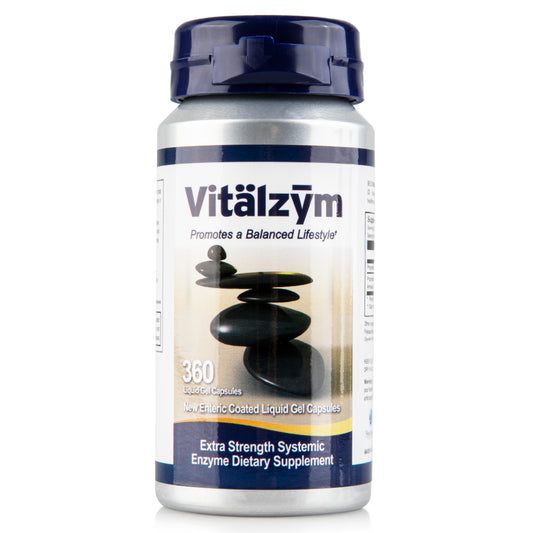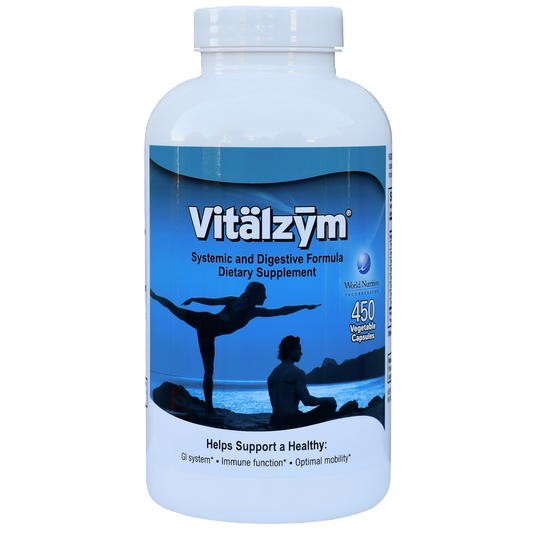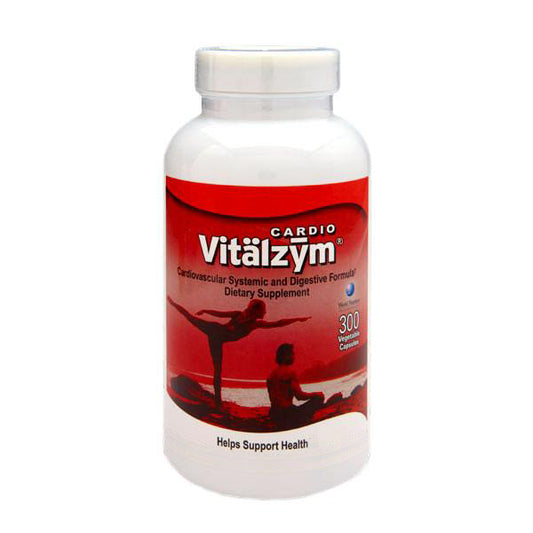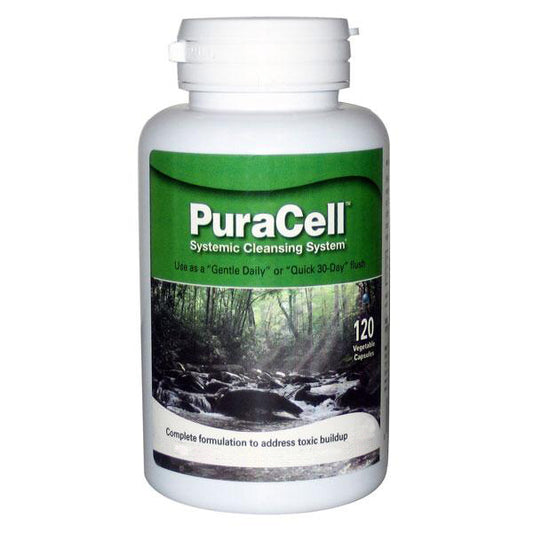Your digestive health plays a crucial role in your overall wellness. If you're someone who values maintaining a healthy lifestyle, then this article is for you. We have curated a step-by-step guide that will empower you to take control of your digestive health. From understanding the importance of gut health to implementing effective strategies, we've got you covered. Get ready to discover the secrets to improving your digestion and unlocking a world of vitality and well-being.
The Importance of a Healthy Gut
A healthy gut is of utmost importance for overall well-being and optimal digestive health. The gut, also known as the gastrointestinal tract, is responsible for the digestion and absorption of nutrients from the food we consume. It is also home to trillions of bacteria, collectively known as the gut microbiota, which play a crucial role in maintaining a balanced immune system, synthesizing vitamins, and supporting proper digestion. When the gut is healthy, it can effectively break down food, absorb nutrients, and eliminate waste. However, an unhealthy gut can lead to various digestive issues, such as bloating, constipation, and diarrhea, as well as impact overall health, including immune function, mental health, and even skin conditions. Therefore, prioritizing a healthy gut through proper nutrition, stress management, and lifestyle choices is essential for maintaining optimal digestive health and overall well-being.
Common Digestive Symptoms and Gut Health Concerns
Common Digestive Symptoms
Digestive symptoms can vary from person to person, but some common ones include:
- Bloating: Feeling of fullness or tightness in the abdomen due to excess gas.
- Constipation: Difficulty passing stool or infrequent bowel movements.
- Diarrhea: Frequent loose or watery stools.
- Heartburn: Burning sensation in the chest, often accompanied by acid reflux.
- Abdominal pain: Discomfort or cramping in the stomach area.
- Nausea: Feeling of queasiness or an urge to vomit.
If you experience any of these symptoms regularly, it may indicate an underlying digestive issue that should be addressed.
Gut Health Concerns
Maintaining a healthy gut is crucial for overall well-being. Here are some common gut health concerns to be aware of:
- Dysbiosis: Imbalance in the gut microbiome, where harmful bacteria outnumber the beneficial ones.
- Leaky gut syndrome: Increased intestinal permeability, allowing toxins and undigested food particles to enter the bloodstream.
- Irritable bowel syndrome (IBS): A chronic disorder characterized by abdominal pain, bloating, and changes in bowel habits.
- Gastroesophageal reflux disease (GERD): Chronic acid reflux that can damage the esophagus.
- Inflammatory bowel disease (IBD): Chronic inflammation of the digestive tract, including conditions like Crohn's disease and ulcerative colitis.
If you suspect any of these gut health concerns, it is important to consult with a healthcare professional for proper diagnosis and treatment. Taking steps to improve your digestive health can help alleviate these symptoms and promote overall wellness.
How To Improve Digestive Health
Improving digestive health is a step-by-step process that involves adopting healthy habits and making conscious choices. Here is a comprehensive guide on how to improve your digestive health:
- Eat a Balanced Diet: Include a variety of fruits, vegetables, whole grains, lean proteins, and healthy fats in your meals. These provide essential nutrients and fiber that support digestion.
- Stay Hydrated: Drink an adequate amount of water throughout the day to keep your digestive system functioning optimally. Hydration helps soften stool and prevent constipation.
- Incorporate Fiber-Rich Foods: Increase your intake of fiber-rich foods like legumes, whole grains, and vegetables. Fiber adds bulk to your stool, promotes regular bowel movements, and supports a healthy gut.
- Manage Stress Levels: Chronic stress can disrupt digestion. Practice stress management techniques such as exercise, meditation, or deep breathing to promote a calm and healthy digestive system.
- Practice Portion Control: Overeating can strain your digestive system. Eat smaller, more frequent meals to aid digestion and prevent discomfort.
- Get Regular Exercise: Engage in regular physical activity to stimulate digestion and promote bowel regularity. Exercise also helps reduce stress and maintain a healthy weight.
- Prioritize Sleep: Aim for 7-8 hours of quality sleep each night. Sufficient sleep supports proper digestion and allows your body to repair and restore itself.
- Consider Enzyme Supplements: Enzymes are essential for breaking down food and aiding digestion. Consult with a healthcare professional to determine if enzyme supplements are suitable for you.
- Prebiotics and Digestive Health: Incorporate probiotic-rich foods like yogurt, kefir, or sauerkraut into your diet. Probiotics help maintain a healthy balance of gut bacteria and support digestion.
- Mindful Eating Techniques: Slow down and savor your meals. Chew your food thoroughly and be mindful of portion sizes. This allows for better digestion and absorption of nutrients.
- Herbal Remedies for Digestive Issues: Certain herbs like ginger, peppermint, and chamomile, have been traditionally used to soothe digestive discomfort. Consult with a healthcare professional before using herbal remedies.
- Importance of Regular Check-ups: Schedule regular check-ups with your healthcare provider to address any digestive concerns and ensure overall digestive health.
By following these steps and making conscious choices, you can improve your digestive health and experience the benefits of a well-functioning gut. Remember, it's important to consult with a healthcare professional before making any significant changes to your diet or incorporating supplements.

Why Is Fiber Important For Digestion?
Fiber plays a crucial role in digestion due to its unique properties and benefits. As a type of carbohydrate that cannot be fully digested by the body, fiber adds bulk to the stool, promoting regular bowel movements and preventing constipation. It also acts as a prebiotic, providing nourishment for beneficial gut bacteria, which in turn supports a healthy gut microbiome. Additionally, fiber helps regulate blood sugar levels, lowers cholesterol levels, and promotes a feeling of fullness, aiding in weight management. By including an adequate amount of fiber in your diet through foods like fruits, vegetables, whole grains, and legumes, you can support optimal digestion, maintain a healthy gut, and improve overall digestive health.
How Does Stress Affect Digestion?
Stress can have a significant impact on digestion due to the intricate connection between the brain and the gut. When we experience stress, the body releases stress hormones like cortisol, which can disrupt the normal functioning of the digestive system. Stress can lead to a variety of digestive issues, including decreased blood flow to the stomach and intestines, reduced enzyme production, and altered gut motility. These effects can result in symptoms such as stomachaches, bloating, constipation, or diarrhea. Moreover, stress can also disrupt the balance of gut bacteria, affecting the overall health of the gut microbiome. Therefore, managing stress through techniques like relaxation exercises, meditation, and regular physical activity is crucial for maintaining a healthy digestive system.
How Do Enzyme Supplements Support Gut Digestive Health?
Enzyme supplements can support gut digestive health by aiding in the breakdown and absorption of nutrients. These supplements contain specific enzymes, such as amylase, protease, and lipase, which help break down carbohydrates, proteins, and fats, respectively. By supplementing with enzymes, individuals with digestive issues or enzyme deficiencies may experience improved digestion and nutrient absorption. Enzyme supplements can also help alleviate symptoms like bloating, gas, and indigestion. However, it's important to note that enzyme supplements should be used under the guidance of a healthcare professional, as they may not be suitable for everyone and may interact with certain medications.
Conclusion
In conclusion, prioritizing and improving digestive health is essential for overall well-being. By following the step-by-step guide outlined in this article, including adopting a balanced diet, staying hydrated, incorporating fiber-rich foods, managing stress levels, practicing portion control, getting regular exercise, prioritizing sleep, considering enzyme supplements, and implementing other expert tips, individuals can take proactive steps towards achieving a healthier gut. It is important to remember that everyone's digestive system is unique, and what works for one person may not work for another. Consulting with a healthcare professional is crucial for personalized advice and guidance. By embracing a healthier gut, individuals can experience improved digestion, enhanced nutrient absorption, reduced digestive symptoms, and ultimately, a happier and healthier life.
Final Thoughts
Elevate your well-being with Vitalzym Extra Strength, an innovative systemic enzyme supplement from World Nutrition. Packed with the remarkable benefits of papain derived from papaya, this vegetarian-friendly formula is designed to replenish enzymes, boost immune function, expedite post-workout recovery, and enhance circulation. Experience the transformative power of Vitalzym, enriched with serrapeptase, bromelain, and other vital ingredients, and unlock a new level of vitality and optimal health. Embrace the potential of World Nutrition's papaya-infused products and embark on a journey towards a vibrant and rejuvenated life.*
Sources
- https://www.tylenol.com/adult-relief/stomach-conditions/gastrointestinal-issues
- https://www.med.umich.edu/pfans/_pdf/hetm-2016/0816-roleoffiber.pdf
- https://www.shfb.org/impact/blog/top-6-reasons-healthy-food-is-important-for-students-in-school/
These statements have not been evaluated by the food and drug administration (FDA). These products are not intended to diagnose, treat, cure, or prevent any disease.







